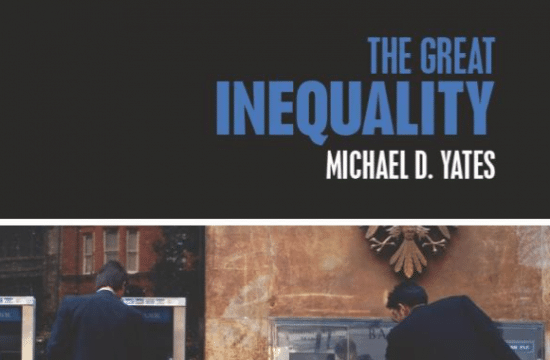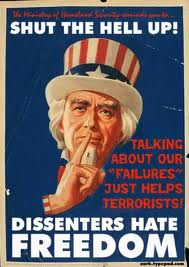 The Obama administration and powerful Democrats have been so consistently supportive of the demands of business, especially in finance, that their most liberal adherents have expressed disillusion. For example, some of our top labor leaders, whose unions spent hundreds of millions of dollars helping Obama and Democrats get elected, have recently criticized through deed and word their supposed political allies. James Hoffa, Jr., president of the International Brotherhood of Teamsters, the nation’s fourth largest union (with about 1.4 million members), filed suit on September 2, 2011 against the federal government to block the end of a U.S. ban on Mexican trucks entering the United States. Much to the chagrin of labor, Obama has pushed for more “free trade” agreements, and the end of the truck ban is part of a deal with the Mexican government, which had filed and won a complaint against the United States under the North American Free Trade Agreement (NAFTA). NAFTA mandates access to U.S. markets by Mexican companies, including trucking firms, and when the United States forbade the entry of Mexican trucks on safety grounds, Mexico sued to force U.S. compliance with the agreement.
The Obama administration and powerful Democrats have been so consistently supportive of the demands of business, especially in finance, that their most liberal adherents have expressed disillusion. For example, some of our top labor leaders, whose unions spent hundreds of millions of dollars helping Obama and Democrats get elected, have recently criticized through deed and word their supposed political allies. James Hoffa, Jr., president of the International Brotherhood of Teamsters, the nation’s fourth largest union (with about 1.4 million members), filed suit on September 2, 2011 against the federal government to block the end of a U.S. ban on Mexican trucks entering the United States. Much to the chagrin of labor, Obama has pushed for more “free trade” agreements, and the end of the truck ban is part of a deal with the Mexican government, which had filed and won a complaint against the United States under the North American Free Trade Agreement (NAFTA). NAFTA mandates access to U.S. markets by Mexican companies, including trucking firms, and when the United States forbade the entry of Mexican trucks on safety grounds, Mexico sued to force U.S. compliance with the agreement.
Richard Trumka, president of the AFL-CIO, whose affiliated unions have more than 12,000,000 members, has verbally taken to task the Democrats and Obama. On August 25, 2011, Trumka promised that organized labor would scale back its support for the Democratic Party in 2012 and establish its own independent political organizations. A newspaper report quoted Trumka: “Let’s assume we spent $100 million in the last election. The day after Election Day, we were no stronger than we were the day before. If we had spent that on creating a structure for working people that would be there year round, then we are stronger.” He also said about Obama, “He’s going to give a speech in a couple of weeks on job creation. If he’s talking about another percent or two break from a tax here and doing something with patent control, and doing three years down the road something with infrastructure bank, that’s not going to get the job done.” Much was made of Trumka’s pronouncements by the media, some suggesting that a labor-Democratic Party divorce and the formation of a labor party were imminent.
Anyone familiar with the U.S. labor movement would be skeptical of these actions and pronouncements, understanding (to paraphrase Shakespeare) that they were full of sound and fury but signified nothing. And sure enough, within a few days of Hoffa’s lawsuit and Trumka’s tough talk, cooler heads prevailed.
With his popularity plummeting as the economy continued to stagnate, Obama was quick to resurrect the populist, pro-worker rhetoric that fooled so many people in 2008. And true to form, our labor warriors were quick to smack their hands together in applause. In Detroit on Labor Day, Obama spoke as if he were the reincarnation of Eugene Debs, saying things that, given his anti-worker record, should have made every union member and every labor official nauseous. One of the luminaries who warmed up the crowd before the president took the stage was James Hoffa. Hoffa got right to the point:
President Obama, this is your army. We are ready to march. And President Obama we want one thing: Jobs. Jobs. Jobs. Jobs. Jobs. Jobs. Jobs. Jobs. That’s what we’re going to tell him. He’s going to be – and when he sees what we’re doing here he will be inspired. But he needs help and you know what? Everybody here’s got to vote. If we go back and keep the eye on the prize, let’s take these sons of bitches out and give America back to America where we belong!
No mention was made of the lawsuit the union had filed over the Mexican truckers. Obama came on stage later and fulsomely praised Hoffa and the other labor aristocrats who had spoken. Would anyone care to bet that the Teamsters will lavish Obama with cash in 2012?
Three days after Labor Day, President Obama spoke on national television about the jobs bill he would propose to Congress. What Obama offered was a hodgepodge of a handful of construction jobs for infrastructure projects, a set of tax incentives for businesses to hire the unemployed, and a continuation of the temporary cut in payroll taxes. The direct job creation would be too small to put a dent in the unemployment rate, and the tax incentives, as most economists know, won’t work. Obama said that higher taxes on the rich would help pay for the spending.
So, Obama’s big bill, the best he could offer to the working class, is pretty much what Richard Trumka said “wouldn’t get the job done.” As San Francisco Chronicle columnist Kathleen Pender aptly stated: “If you are unemployed and hope President Obama’s jobs program will create a position for you, don’t hold your breath.” You would think that Trumka would have assailed this pathetic offering from the president, especially since he knows that Obama will not try very hard to get the bill passed. And he must also know that the president soon will be proposing massive cuts in Medicare and Medicaid. Yet here is what Trumka—who was a special guest of the White House at the president’s speech—said:
The President took an important and necessary step tonight: he started a serious national conversation about how to solve our jobs crisis. He showed working people that he is willing to go to the mat to create new jobs on a substantial scale. Tonights speech should energize the nation to come together, work hard and get serious about jobs. . . . The plan announced by the President is only the opening bid. We expect to see more proposals in the next weeks and months to put America back to work. President Obama understands that this economic crisis was not created overnight, and it will not be solved overnight. The middle class has been under attack for decades. He understands that we need to rebuild our economy for the 21st century and rebuild our middle class. But doing this will require a revolution in the way Washington takes on these questions. Republicans are going to have to stop blocking bills that sustain or create millions of jobs and start offering credible solutions. We don’t have time to waste on the same old failed policies of deregulation and lower taxes that drove our economy off the cliff in the first place. All our elected leaders will be judged by whether they act with integrity and energy to create good jobs now.
It is difficult to imagine a more spineless response from the person who is supposed to be the public face of the labor movement. I think I can make the same bet about campaign contributions for Trumka as for Hoffa.
Most of our labor leaders are as out of touch with working people as are Obama and politicians of both parties. They live in separate worlds. Ordinary workers in the United States don’t make much money. More than a quarter of all jobs pay a wage that does not support a family of four at the poverty level of income. For ordinary workers, health care and pension benefits are increasingly rare commodities. What is more, for them, pay has stagnated for nearly forty years. Top union officials, on the other hand, get very large pay checks. Hoffa’s is about $300,000 plus generous benefits and expenses. Trumka is paid more than $250,000 plus benefits and expenses. He and Hoffa are by no means the highest paid union staff persons. Reg Weaver, president of the country’s largest union, the National Education Association, received $483, 868 in 2008 (the last year in which Labor Management Reporting and Disclosure Act data are available). International Longshoremen’s Association chief Harold Daggett was paid $646,621 that year. Overall, according to a report by Mark Brenner in Labor Notes, “In 2008, nearly 10,000 union officials or staff brought home salaries greater than $100,000, costing a total of $1.2 billion. A subset, 1,612 individuals, pulled down salaries over $150,000, adding up to $316 million.” And our union royalty have not suffered much these past decades. Brenner goes on to tells us: “According to data filed under the Labor Management Reporting and Disclosure Act (LMRDA), the number of union officials and staff earning high salaries has exploded in recent years. Those earning more than $100,000 a year tripled between 2000 and 2008, the latest year with complete data, and the number earning more than $150,000 also tripled.”
While labor officials have let the good times roll, union membership has plummeted. Less than 8 percent of the private sector workforce is unionized (in the early 1950s, about one-third were in unions). Public sector union density is much higher, at slightly over 36 percent, but it too is falling, and unionized public employees are under attack in nearly every state. The Obama administration has done nothing to defend them.
In the face of this, organized labor, for the most part, has done little. The Service Employees International Union (SEIU) has squandered its past organizing successes by fighting against other unions and dissidents within its own ranks. Onetime labor golden boy and SEIU president, Andy Stern, has quit the labor movement for the greener pastures of corporate boards. He was part of Obama’s deficit reduction commission, the one that recommended cuts in social security and Medicare. Now he says he was too tough on the banks when he was in SEIU. Unions as a whole do little organizing, and they have made a strategy out of granting concessions to employers. The United Auto Workers has sold out new employees, who now make about half of what veterans make for doing the same work, and it seldom sees a concession it doesn’t like. This year, public workers in Wisconsin revolted against the vicious anti-union program of Governor Scott Walker. As demonstrations mounted, working people were galvanized and inspired as they have seldom been in decades. Yet, most union leaders refused to push the mobilization further and instead agreed to concessions and an end to the demonstrations and walkouts in favor of expensive and failed efforts to recall the offending politicians. Not long after Wisconsin, a massive strike by Verizon workers again roused the working class, which strongly supported the strikers and worked hard to build a coalition of labor allies that might have defeated the company. But just as these efforts were getting stronger, the Communication Workers of America (one of our better unions) called off the strike and pulled the plug on support efforts, willing simply to return to the bargaining table.
As things now stand, the future is bleak for the U.S. labor movement. In fact, it is only by a stretch of the imagination that the word “movement” can be attached to the word “labor.” It is not just that labor leaders are corrupt, or out-of-touch with members, or overpaid, or coopted by political elites. There are rank-and-file movements in many unions, and these aim to turn their union around and rebuild the labor movement. Sandy Pope, for example, is running against Hoffa for the presidency of the Teamsters (Unlike Hoffa, who is a lawyer and has never had a working class job, Pope has been a steel hauler and dock worker). She had this to say about her opponent:
Suddenly he’s talking tough, when he’s been totally missing in action when it comes to fighting back against concessions at the companies we represent like UPS or Waste Management. Now he’s talking about jobs, when he’s allowing all these companies to get away with hiring part-time workers, temp workers, contracting out our work.
Pope would be a gigantic improvement over Hoffa. She should be supported, as should all union dissidents. However, no matter whether she wins the election and no matter how many dissidents like her come to power, it will be difficult to put the labor movement back together again.
There are two, interrelated, reasons for this. First, while Hoffa and Trumka babble about jobs, the global economy is undergoing fundamental changes that are creating a future in which there will be massive unemployment and underemployment worldwide. A combination of workplace reorganization (what we might call Taylorism on steroids) that allows companies to continuously reduce the amount of labor used to produce a unit of output, labor-saving technology, the political deregulation of corporate decision-making, and the expulsion of peasants from their lands, has generated a reserve army of labor of monumental size. The authors of a forthcoming Review of the Month in Monthly Review estimate that the reserve army might include as many as 2.4 billion persons (compared to an active labor force of 1.4 billion). Such a large pool of exploitable labor puts extreme downward pressure on wages everywhere in the world. It encourages corporations in rich countries to move their operations to where the reserve is largest, notably to China and India, which together contain much of the world’s surplus labor. And it leads to mass out migrations of desperate people from poor to rich nations, and this increases the reserve army in these countries. To absorb all of these underemployed and unemployed men, women, and children, the economies of every country would have to grow at unprecedented rates for many decades, something very unlikely and, if it did happen, environmentally catastrophic.
Second, union dissenters typically promise to do a better job than the incumbents of raising wages and benefits, holding the line on concessions, stopping layoffs and plant closings, filing and winning grievances, building democratic structures in the union, and striking when necessary. These are all admirable goals and worth fighting for. But they fall far short of what is needed. Even building coalitions with immigrant workers and supporting all of their efforts to win full citizenship and workplace rights, as well as forging solidarity with workers in other countries, both of which union dissidents almost always support, won’t be sufficient.
What is needed is an understanding that capitalism is now a dead end for all workers. It always was for those in the poor countries. Some workers in the rich nations were able to stake out a reasonably good life, partly at the expense of the super exploitation of the proletariat in Latin America, Africa, and Asia. Today this exploitation redounds solely to the benefit of the capitalists. This is not going to change. The trajectory of working class life is downward and permanently so. There is no way, for example, for unions, no matter how democratically controlled, to prevent the movement of capital from rich to poor nations or to prevent the use of cheap labor in these countries from doing every imaginable kind of service work electronically. It is not possible either for unions to stop the use of the military force or police actions used to maintain the subservience of labor to capital.
Unless, that is, a radical transformation of the system itself becomes the goal of the labor movement. A labor movement that begins to dare to ask what work is under capitalism and what it could be in societies in which human beings were not considered to be simply commodities, societies in which, as Marx put it, “the free development of each is a condition for the free development of all.”







Yes, the choices have changed. Fifty, 100, and 150 years ago the debate was whether reforming capitalism or getting rid of it was the goal worthy of your energy and sacrifice. Some were for reform, some for revolution, some found an ingenious pairing of both. In the 1930s some people said there was no room for reform left in capitalism, but that proved to be wrong — then. Now there is no choice except get rid of capitalism or watch things get worse and worse. The reasons are more than globalization. No rich, no poor.
Micheal, I agree with a lot of what you write and share many of your frustrations and analysis. But I see more reasons for hope. For instance, from where I sit, CWA hasn’t “pulled the plug” on support efforts for Verizon workers. They appear to be pursuing a strategy along with IBEW, JwJ and other groups, to win a contract with an escalating corporate campaign, including a media strategy and actions at Wireless stores. Open-ended strikes have a mixed record of success, and as I’m sure you know, aren’t the only way to hurt a high-profile company. When unions represent a shrinking minority of a company’s workers, it’s even more of an uphill fight. The way I’ve heard it described, the goal of the Verizon campaign is to use the fight against Verizon to galvanize support for workers’ struggles in many different arenas while defending the contract. Again, I don’t know yet if there’s a coherent strategy sufficient to accomplish this goal, but I think it’s worth engaging with it, don’t you? If not, I’d be curious to understand why not.
Fine article, Mike. As you explain and detail in a number of ways organized labor is trapped — again — by our corrupt two party set-up, and the labor leadership finds itself — again — in the difficult position of trying to whip-up member support for Democrats when there is a weak case, at best. Were it not for the fear of some Republican freak on the ballot in 2012 there would be no case at all. Folks may want to review an article I did for MRZine 4 years ago, and which it seems I would only have to update slightly to fit the current situation…
http://mrzine.monthlyreview.org/2007/townsend240807.html
The Obama administration crossed the line from failure to fraud in the summer of 2009, and shame on our side for continuing to clutch at his pant leg as if he will someday protect us. One is tempted to ask the several dozen national labor leaders who are also DNC members what it is they intend to do (someday soon?) to push this White House to be responsive to labor. For starters they could employ at least one White House staff member who knows anything about the condition of the workforce in the workplace today, organized and unorganized. Of course they have no intention of employing — let alone listening to such a person — since it’s easier to ignore workers and unions. They’ll get labor’s money and some votes for free. The only prudent course of action today is to advise union members to “prepare for seige, ASAP.” The unorganized will be destroyed, sadly. Perhaps we will survive the bombing, and with reinvigorated leadership maybe we will get out of the trench to counterattack. Thanks again.
Charles, I agree with you. today it is socialism or barbarism.
Lara, The sad post-WW2 behavior of organized labor gives us little room for hope from the top of the labor hierarchy. For Verizon, see the writings of Steve Early. My impression is that the union did pull the plug on the support activities. I’d be pleased to know it didn’t.
Chris, as always, thanks for the reply. UE is a voice in the wilderness.